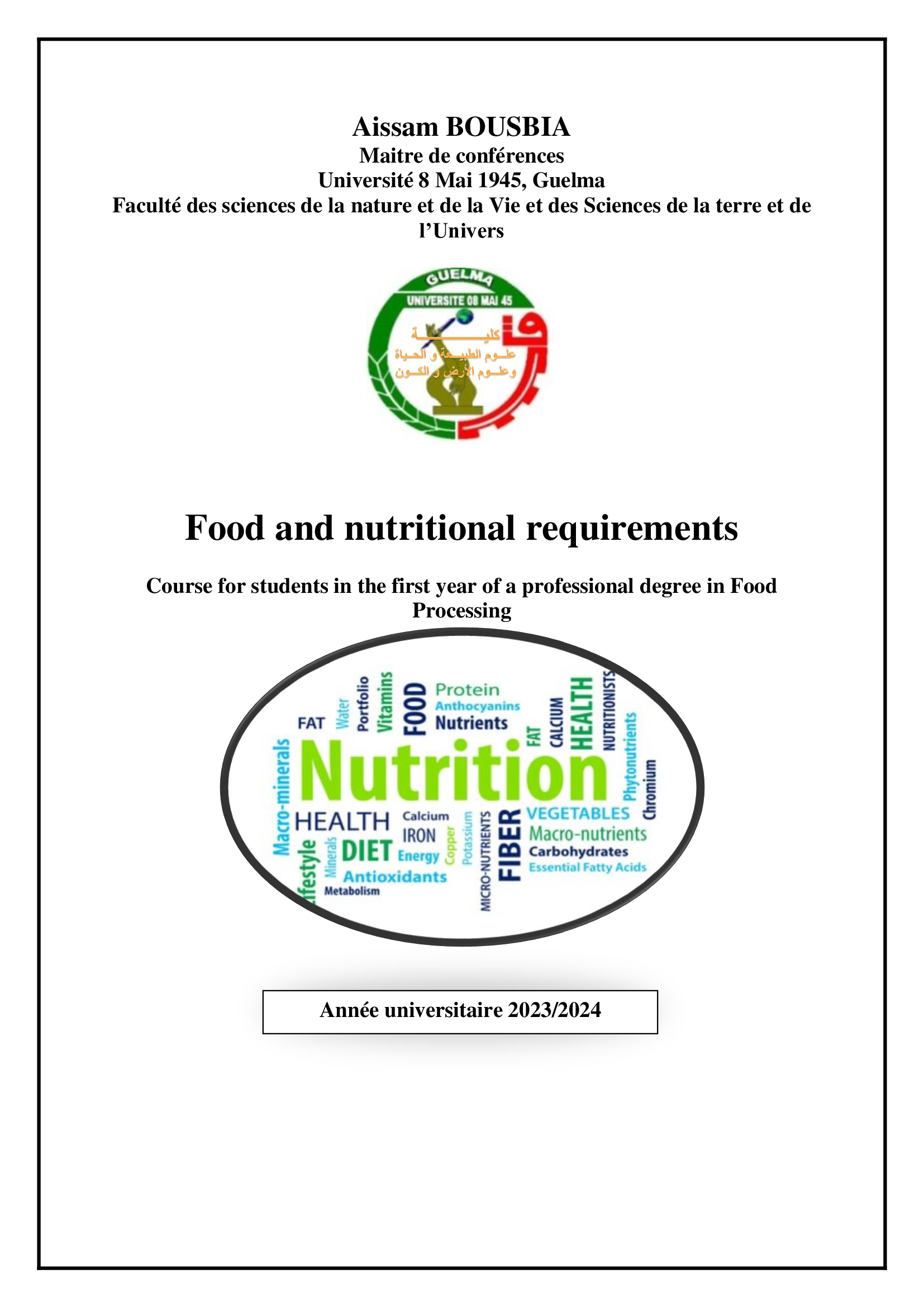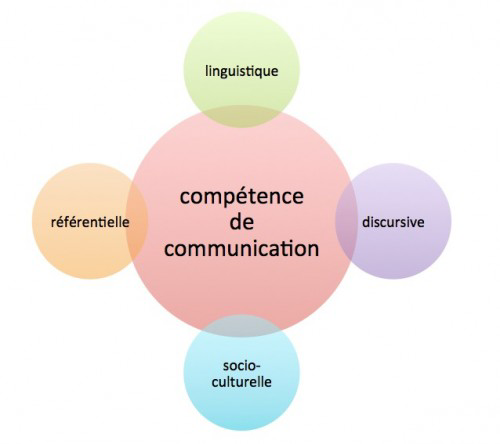
This course is aimed at undergraduate students in “Agri-Food Sciences” whose chemistry will be one of the elements of their scientific training.
- Teacher: yassine Aimene
Objectives: The course aims to guide the student about the constant danger in the workplace and provide the necessary techniques to combat these risks.
- Teacher: yassine Aimene

PREFACE
Course for students in the first year of a professional degree in Food Processing
The total timetable for the course entitled "Food and Nutritional requirements" is 32h30, broken down as follows: 22h30: classroom teaching at the rate of 1h30 per week; 10h00: personal work, the credit and coefficient for this course is 1.5.
This subject enables students to acquire notions of energy requirements and how to cover them. It also provides an opportunity to learn about food-related illnesses, which are common in Algeria, and are linked to dietary insufficiency or excess.
The skills taught in this subject focus on making students capable of understanding the meaning of energy requirements, calculating the body's different needs, and measuring and analysing the consequences of dietary deficiencies.
This course aid helps students to develop their knowledge, improve their skills and practise on real-life cases.
In order to continually enrich and improve this teaching aid, all comments will be useful and taken into consideration.
bousbia.aisssam@univ-guelma.dz
or
- Teacher: AISSAM BOUSBIA

Objectifs de la matière
o S’exprimer à l’écrit et à l’oral
o Rédiger des textes simples en utilisant les règles grammaticales
Contenu de la matière
o Structureur Message de l’ONU.
o Renforcer l’outil linguistique (syntaxe, orthographe, etc.).
o le CV.
o Les lettres professionnelles.
o Ouverture à la communication.
- Teacher: Sana BENOSMANE
- Teacher: SARRA FERHI
- Teacher: Mouna TABET
- Teacher: REDA FARTAS